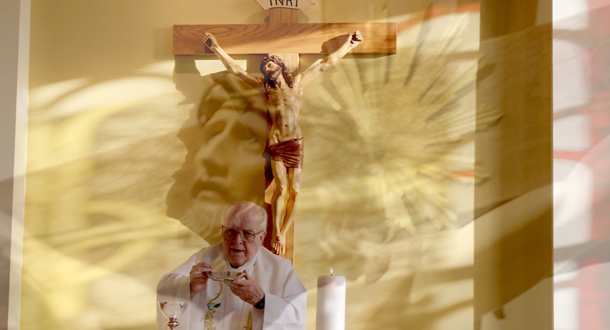 Scripture:
Scripture:
2 Kings 11:1-4, 9-18, 20
Matthew 6:19-23
Reflection:
Is it foolish to believe that goodness ultimately triumphs? That evil will not prevail?
It’s hard to avoid these questions when considering the bloody spectacle recounted in today’s first reading. The story begins with a mass slaughter. Athaliah, driven by fierce ambition and unquenchable bitterness, murders “the whole royal family” and places herself on the throne where she rules unchallenged for six years. Treachery triumphs, evil succeeds.
Or so it seems. Athaliah’s hold on power quickly crumbles when Joash, the sole descendent of the king who escaped Athaliah’s wickedness, is anointed king by Jehoiada, a priest of the temple, and joyfully acclaimed by the people. Suddenly, she who once felt unassailable is dethroned and killed right before Jehoiada renews the covenant between God and the people, reminding them that their ultimate loyalty and trust should be given not to Athaliah or any other earthly ruler, but to God. The story abounds in irony because upon discovering that Joash has been made king, Athaliah accuses the people of treason, not realizing that she is the true traitor because she had abandoned the ways of God for the ways of evil.
Athaliah’s fall into darkness is a particularly disturbing reminder that sin deceives and leads to death while goodness and faithfulness bring life. Or, as Jesus succinctly puts it in today’s gospel, if we set our hearts on earthly treasures (as Athaliah surely did), we end up with nothing. But if we seek heavenly treasure, a richness that is found in praise and thanksgiving to God, in love of God and neighbor, and in holiness of life, joy and peace will mark our days.
And so we have an answer to our questions. Those who are truly wise know that goodness ultimately triumphs and evil, thanks to God, never finally prevails.
Paul Wadell is Professor of Theology and Religious Studies at St. Norbert College in De Pere, Wisconsin, and a member of the extended Passionist family.

 Scripture:
Scripture: Scripture:
Scripture: Scripture:
Scripture: Scripture:
Scripture: Scripture:
Scripture: Scripture:
Scripture: Scripture:
Scripture: